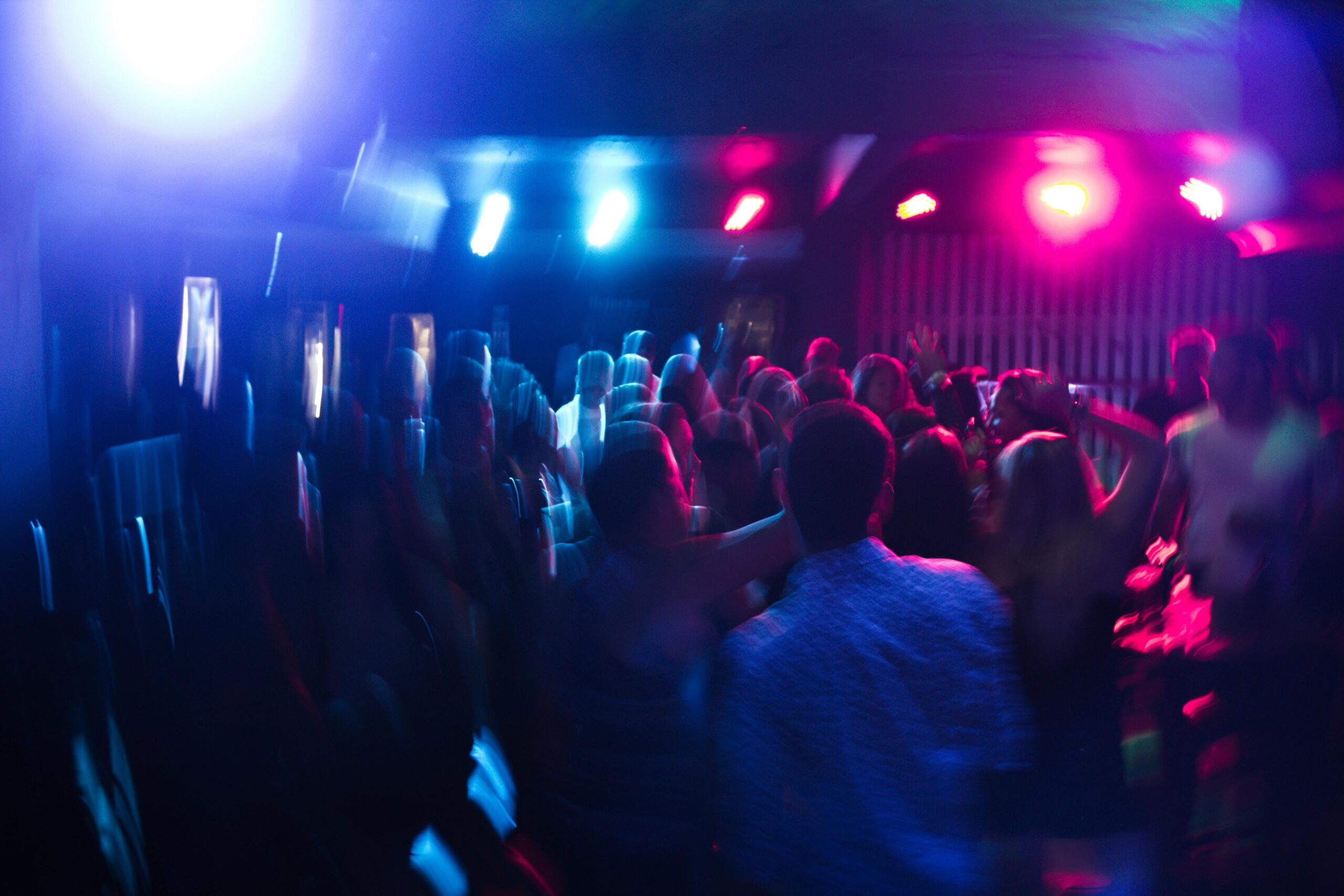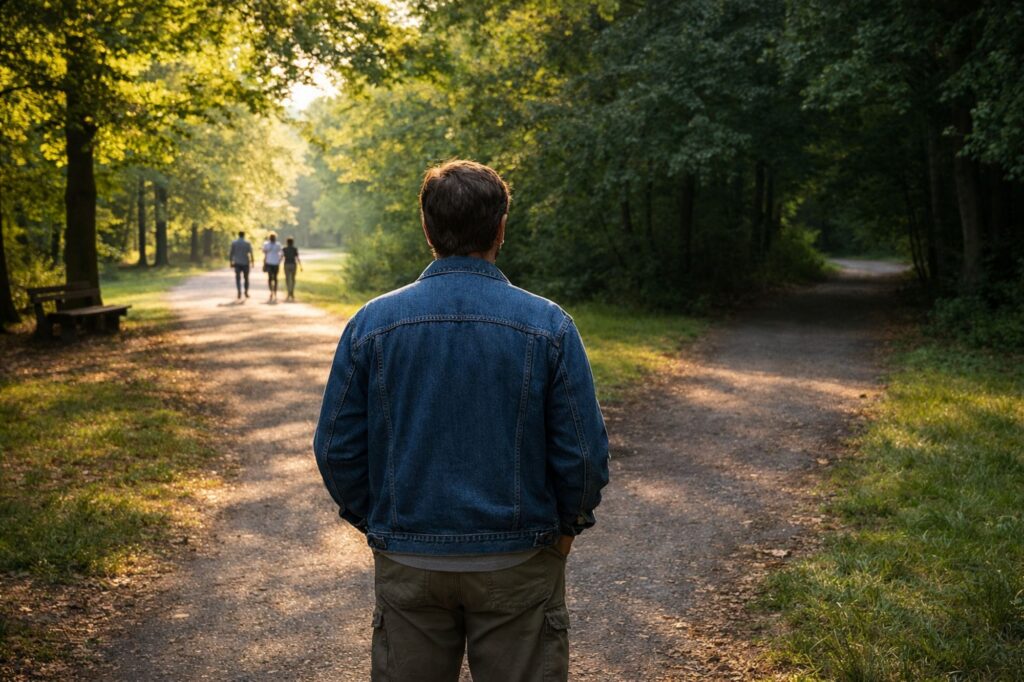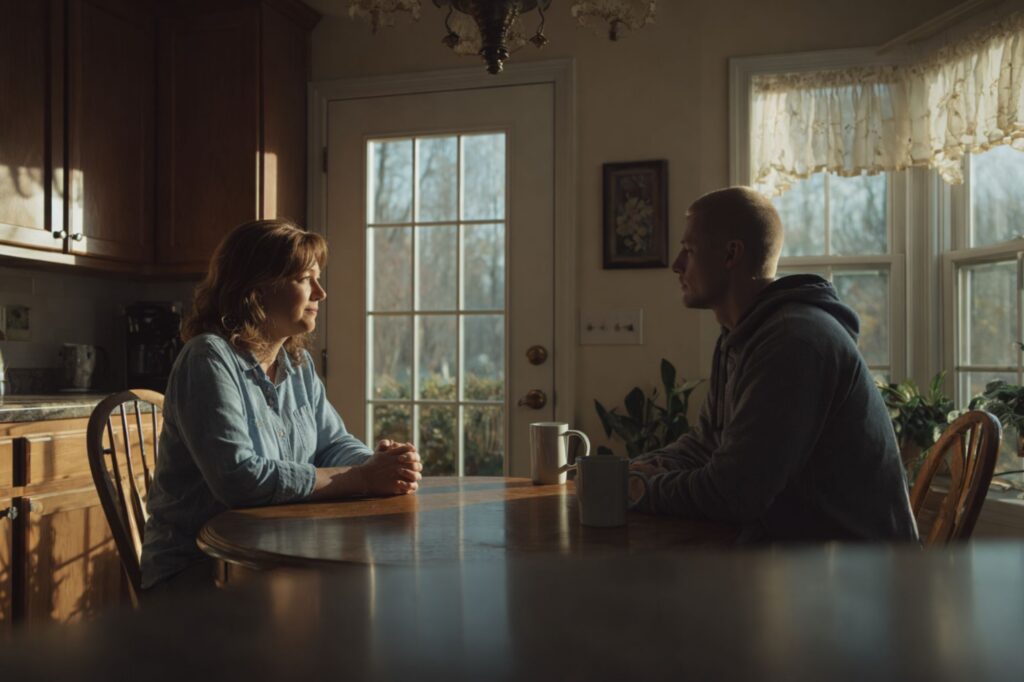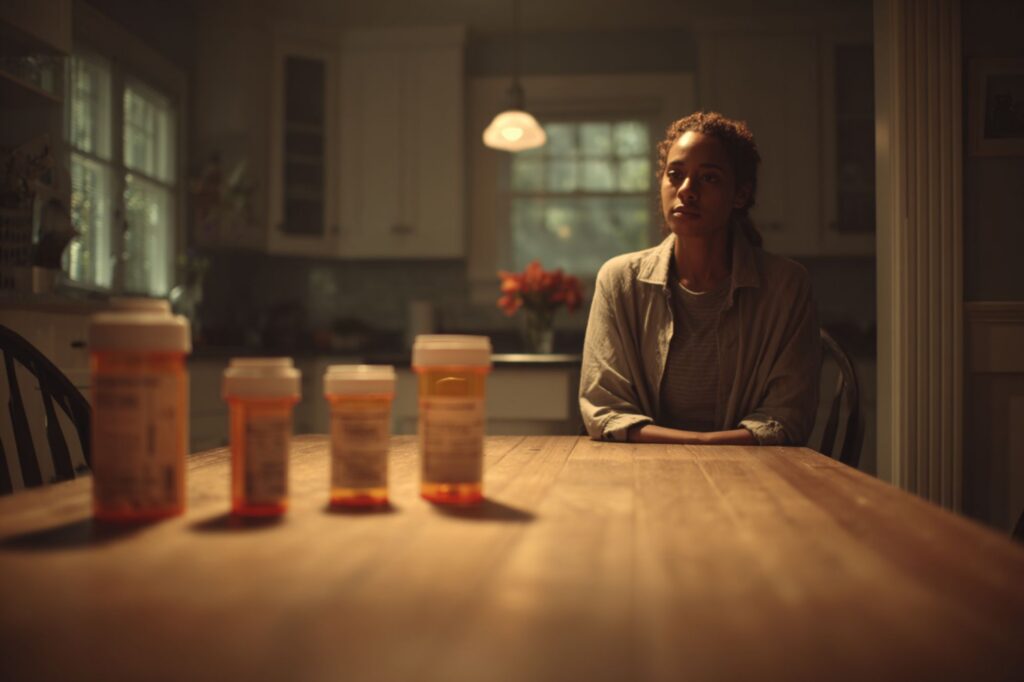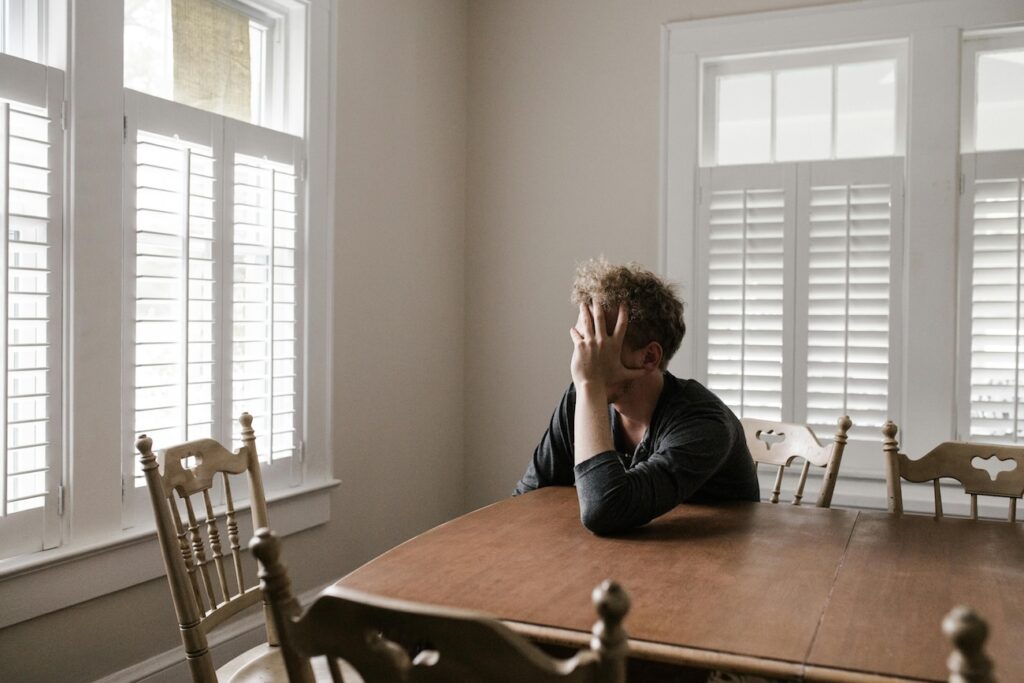
Imagine yourself going out with friends, the music is thumping, and laughter is all around you—time of your life. Everything becomes foggy all of a sudden, and the next morning you cannot recall what happened the night before. You might have been misled. Many people have gone through this terrible circumstance; thus, it is crucial to understand what it means to be roofied, how to defend oneself, and what to do should it happen to you.
Common date rape drugs, such as Rohypnol and GHB, are often used in these scenarios. These substances can impair memory and increase vulnerability to assault.
Key Takeaways
Get Medical Help: If you think you’ve been roofied, seek immediate medical attention to check for harmful substances and document evidence.
Hydrate and Rest: Drink water and get plenty of rest to help your body recover. Avoid alcohol and other substances.
Find Emotional Support: Talk to friends, family, or a therapist to help process the experience and support your emotional recovery.
Table of Contents
What Does It Mean to Be Roofied?
Usually used in cases of drug-assisted sexual assault, “Roofied” usually refers to having been drugged—typically with a chemical like Rohypnol. These drugs are difficult to detect in beverages since they have no taste, smell, or color. They can cause sleepiness, confusion, and memory loss, making victims vulnerable and with little recollection of what happened. This vulnerability can lead to victims being sexually assaulted, highlighting the severe dangers and implications of being drugged.
Definition of Being Roofied
Being roofied refers to the act of being drugged without one’s knowledge or consent, often with the intention of committing sexual assault or rape. The term “roofie” originated from the drug Rohypnol, also known as flunitrazepam, which is a type of benzodiazepine that can cause sedation, amnesia, and loss of consciousness. This malicious act can occur in various settings, including parties, dates, and other social gatherings, leaving the victim vulnerable and with severe physical and emotional consequences. Understanding what it means to be roofied is crucial in recognizing the signs and taking appropriate action to protect oneself and others from sexual assault.
Frequently Used Date Rape Drugs
Rohypnol: Also referred to as “roofies,” this medication is a potent sedative that rapidly renders users unconscious. It is one of the common date rape drugs used to incapacitate victims.
Gamma-Hydroxybutyrate (GHB): A central nervous system depressant that causes euphoria, somnolence, and memory loss. GHB is another date rape drug that can lead to unconsciousness and memory loss, necessitating immediate medical attention if suspected.
Ketamine: An anesthetic that induces dissociation and hallucinations is ketamine. It is also used as a date rape drug, posing significant risks in social situations.
Symptoms of Being Roofied
The symptoms of being roofied can vary depending on the type and amount of drug used, as well as the individual’s tolerance and sensitivity. However, common symptoms include:
If any of these symptoms are recognized, it is crucial to seek medical treatment immediately to ensure the safety of the individual and to gather legal evidence if necessary.
Physical Symptoms
Mental fogginess and confusion
Difficulty speaking or slurring words
“Blacking out” or losing memory
Trouble walking or feeling unsteady on feet
Feeling more intoxicated than expected based on alcohol consumption
Passing out
Headache
Dizziness and confusion
Nausea and vomiting
Slower heart rate
Slower breathing than usual
Emotional and Psychological Symptoms
Feeling disoriented and disconnected from one’s surroundings
Experiencing anxiety, fear, or panic
Feeling vulnerable and powerless
Difficulty concentrating or making decisions
Feeling emotionally numb or detached
Experiencing flashbacks or nightmares
Recognizing these symptoms is vital in seeking timely medical attention and support.
The Indications and Dangers of Roofying
Direct Impacts: Symptoms of Being Roofied
Common signs of being roofied include confusion and disorientation.
Disorientation
Decreased motor coordination and muscle relaxation
Retching and nausea
Prolonged Repercussions
Trauma to the mind
Post-traumatic stress disorder (PTSD) is a common psychological impact of being roofied, often resulting in symptoms like flashbacks and severe anxiety that disrupt daily life and hinder social interactions.
Decreased anxiety and sadness
Gaps in memory
Issues with trust in social situations
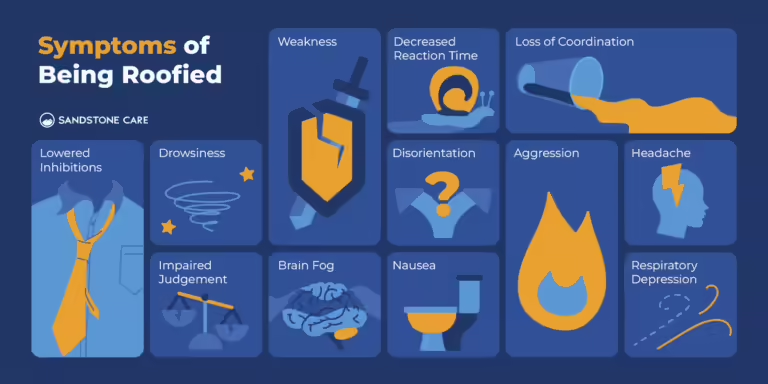
How to Recognize if Someone May Have Been Roofied
If you suspect that someone may have been roofied, look for the following signs:
Observing Sudden and Uncharacteristic Behavior Changes
-
Sudden and unexplained changes in behavior, such as becoming more aggressive or flirtatious
-
Difficulty speaking or slurring words
-
Trouble walking or feeling unsteady on feet
-
Becoming more intoxicated than expected based on alcohol consumption
-
Passing out or becoming unresponsive
-
Showing signs of confusion, disorientation, or memory loss
If you notice any of these signs, it is essential to seek immediate medical attention and report the incident to the authorities. Remember, being roofied is never the victim’s fault, and seeking help is the first step towards recovery and justice. Consulting medical professionals is crucial to ensure proper support and monitoring as the effects of the drugs subside.
Prevention and Safety Tips
Being aware of the risks of being roofied and taking preventive measures can help minimize the chance of assault. Here are some tips to help you stay safe:
Never Accept Drinks from Strangers
If a stranger offers you a drink at a party or bar, politely refuse. If you are at a party, pour your own drinks or carefully watch as your drink is made. If you’re out at a bar or club, order your own drink and take it directly from the bartender. Never accept a drink that has been left unattended or that you did not see being prepared.
Drink from Bottles that You Opened Yourself
Sometimes entire bottles of alcohol are spiked with drugs. If possible, only drink from freshly opened bottles or from bottles that are visible on the shelf of a reputable bar or establishment. This can help reduce the risk of being roofied.
How to Keep Yourself Safe
Even if the victim is never at fault, there are steps you may take to lessen your chances of becoming a victim of roofie:
-
Remain Alert: Constantly keep an eye on your beverage. If you must leave, have a reliable buddy take care of it.
-
Avoid Accepting Drinks: Refrain from accepting drinks from strangers and never leave your drink unattended. Always keep your drink with you to minimize the risk.
-
Believe Your Intuition: If something doesn’t feel right, it most likely is. Never be afraid to leave an uncomfortable situation.
-
Apply the Buddy System : Be sure to stick together and watch out for one another.
-
Select Bottled Drinks: Select bottled beverages that are more difficult to tamper with if you’re not sure whether open drinks are safe.

Action Items to Take If You Think You’ve Been Roofied: Seek Medical Attention
Seek Help Immediately: Inform a trusted person and seek medical assistance if you feel ill or think you may have been drugged. It is crucial to seek medical treatment immediately to address severe health risks such as losing consciousness, potential drug interactions, and overdose.
Preserve Evidence: Avoid taking a bath or doing laundry. It is essential for a possible inquiry.
Report the Incident: Get in touch with the relevant authorities and give as much details as you can.
Consult Medical Professionals: If there is a risk of sexual assault, consult medical professionals about pregnancy prevention medication. This is important for preventing unwanted pregnancies following such traumatic events.
Reach Out for Support: To assist you in processing the incident, get in touch with a support group or counselor.
Get to a Safe Place
If you believe you or someone else has been roofied, get to a safe place as soon as possible. Don’t drive or leave the area unless there’s a threat. Try to alert your friends about the danger and stay where people can see you until help arrives.
Report the Incident to the Police
After seeking medical care, you will need to file a police report. Be sure to provide as much detail as possible about the incident, including where you were and when you believe you were drugged. The police may be able to check the video footage to try to identify the perpetrator. Reporting the incident can help prevent others from being victimized and can also help you seek justice.
Common Questions: National Sexual Assault Hotline
Q: How can I determine whether someone has tampered with my drink?
A: Try to notice odd tastes, smells, or colors, however it’s difficult. When in doubt, avoid drinking it.
Q: Are men also susceptible to being roofied?
A: Regardless of gender, anyone can become a target. Everyone needs to use extreme caution. Roofies can dangerously interact with other drugs already in a person’s system, emphasizing the importance of immediate medical attention.
Q: What should I do at a party if I see someone acting strangely?
A: Go up to them and inquire about their needs. Seek emergency medical attention if they don’t seem to be responding or if they appear disoriented.
Q: How often does someone get roofied?
A: It’s more common than most people think, and many incidents go unreported because of shame or fear.
Final Thoughts
Being roofied is a real and major risk in social settings. While preventive measures are crucial, so is helping those who have already experienced trauma. By means of awareness, alertness, and empathy, we can try to create more safe surroundings for all. Remember that you are not alone and that you have help if you so want.
It is also important to highlight the resources and support available for survivors of sexual violence. Various organizations provide assistance for those affected, emphasizing the importance of seeking help and the legal resources available to victims.
Society must support more proactive prevention strategies, honest communication, and awareness-raising campaigns if it is to properly solve the issue of being roofied. It all boils down to encouraging a society in which everyone feels safe and supported and drugging someone is unacceptable. Let’s make sure this dark cloud vanishes from above our get-togethers together.
Dr. Mitchell G. Cohen is a board-certified Internal Medicine specialist with over 34 years of experience in patient-centered healthcare. A graduate of Hahnemann University School of Medicine, Dr. Cohen completed his internship at the University Health Center of Pittsburgh, where he gained invaluable hands-on experience. He is also a certified addiction specialist, holding membership with the American Society of Addiction Medicine (ASAM).
Currently based in Nashua, NH, Dr. Cohen is affiliated with Saint Joseph Hospital, where he provides comprehensive care focusing on both internal medicine and addiction treatment. His expertise includes prevention, diagnosis, and management of adult diseases, as well as specialized care for individuals facing substance use disorders.
Dr. Cohen is committed to fostering open communication, ensuring his patients are fully informed and empowered to make confident decisions about their health and treatment options.

MD Mitchell Grant Cohen
Dr. Mitchell G. Cohen is a board-certified Internal Medicine specialist with over 34 years of experience in patient-centered healthcare. A graduate of Hahnemann University School of Medicine, Dr. Cohen completed his internship at the University Health Center of Pittsburgh, where he gained invaluable hands-on experience. He is also a certified addiction specialist, holding membership with the American Society of Addiction Medicine (ASAM).
Currently based in Nashua, NH, Dr. Cohen is affiliated with Saint Joseph Hospital, where he provides comprehensive care focusing on both internal medicine and addiction treatment. His expertise includes prevention, diagnosis, and management of adult diseases, as well as specialized care for individuals facing substance use disorders.
Dr. Cohen is committed to fostering open communication, ensuring his patients are fully informed and empowered to make confident decisions about their health and treatment options.
- MD Mitchell Grant Cohen
- MD Mitchell Grant Cohen
- MD Mitchell Grant Cohen
- MD Mitchell Grant Cohen
- MD Mitchell Grant Cohen
- MD Mitchell Grant Cohen
- MD Mitchell Grant Cohen
- MD Mitchell Grant Cohen
- MD Mitchell Grant Cohen
- MD Mitchell Grant Cohen
- MD Mitchell Grant Cohen
- MD Mitchell Grant Cohen
- MD Mitchell Grant Cohen
- MD Mitchell Grant Cohen
- MD Mitchell Grant Cohen
- MD Mitchell Grant Cohen
- MD Mitchell Grant Cohen
- MD Mitchell Grant Cohen
- MD Mitchell Grant Cohen
- MD Mitchell Grant Cohen
- MD Mitchell Grant Cohen
- MD Mitchell Grant Cohen
- MD Mitchell Grant Cohen
- MD Mitchell Grant Cohen
- MD Mitchell Grant Cohen
- MD Mitchell Grant Cohen
- MD Mitchell Grant Cohen
- MD Mitchell Grant Cohen
- MD Mitchell Grant Cohen
- MD Mitchell Grant Cohen
- MD Mitchell Grant Cohen
- MD Mitchell Grant Cohen
- MD Mitchell Grant Cohen
- MD Mitchell Grant Cohen
- MD Mitchell Grant Cohen
- MD Mitchell Grant Cohen
- MD Mitchell Grant Cohen
- MD Mitchell Grant Cohen
- MD Mitchell Grant Cohen
- MD Mitchell Grant Cohen
- MD Mitchell Grant Cohen
- MD Mitchell Grant Cohen
- MD Mitchell Grant Cohen
- MD Mitchell Grant Cohen
- MD Mitchell Grant Cohen
- MD Mitchell Grant Cohen
- MD Mitchell Grant Cohen
- MD Mitchell Grant Cohen
- MD Mitchell Grant Cohen
- MD Mitchell Grant Cohen
- MD Mitchell Grant Cohen
- MD Mitchell Grant Cohen
- MD Mitchell Grant Cohen
- MD Mitchell Grant Cohen
- MD Mitchell Grant Cohen
- MD Mitchell Grant Cohen
- MD Mitchell Grant Cohen
- MD Mitchell Grant Cohen
- MD Mitchell Grant Cohen
- MD Mitchell Grant Cohen
- MD Mitchell Grant Cohen
- MD Mitchell Grant Cohen
- MD Mitchell Grant Cohen
- MD Mitchell Grant Cohen
- MD Mitchell Grant Cohen
- MD Mitchell Grant Cohen
- MD Mitchell Grant Cohen
- MD Mitchell Grant Cohen
- MD Mitchell Grant Cohen
- MD Mitchell Grant Cohen
- MD Mitchell Grant Cohen
- MD Mitchell Grant Cohen
- MD Mitchell Grant Cohen
- MD Mitchell Grant Cohen
- MD Mitchell Grant Cohen
- MD Mitchell Grant Cohen
- MD Mitchell Grant Cohen
- MD Mitchell Grant Cohen
- MD Mitchell Grant Cohen
